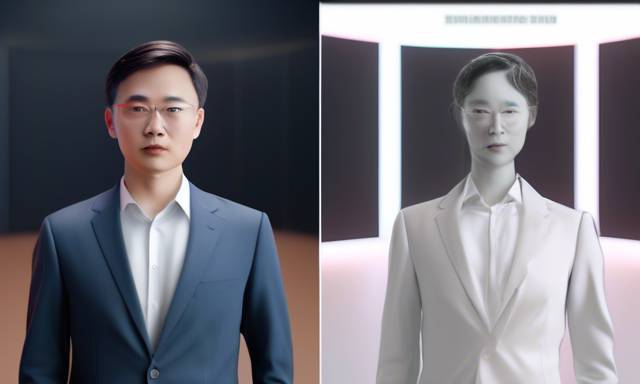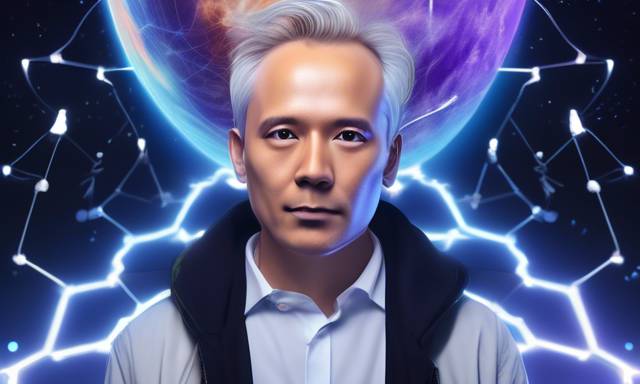OpenAI’s Transformative Shift: A New Era Unfolds 🌟
OpenAI is on the cusp of a monumental change, with CEO Sam Altman set to receive shares for the first time. This transition introduces a fresh chapter in the company’s journey as it evolves into a for-profit benefit corporation.
The company’s reorganization aims to draw in investors while reinforcing its commitment to creating beneficial artificial intelligence. Let’s delve into the details of this significant transformation.
Sam Altman’s New Role: A Game Changer for OpenAI 🔑
OpenAI, renowned for its creation of ChatGPT, is about to embark on a transformative phase. On September 25, 2023, the announcement indicated plans to restructure the organization into a for-profit benefit corporation. This shift signifies that OpenAI will no longer operate under the direct oversight of a non-profit board.
This strategic change is aimed at enhancing the appeal of the company to potential investors while ensuring that its foundational goal of developing beneficial artificial intelligence remains paramount.
While the non-profit division of OpenAI will persist, its stake in the emerging for-profit organization will be limited. One notable outcome of this transformation is that CEO Sam Altman will become a shareholder for the first time.
Insiders have reported that OpenAI’s valuation could soar to approximately 150 billion dollars post-restructuring, largely due to the resounding success of ChatGPT and the burgeoning global attention on artificial intelligence.
Altman’s stake in the company introduces a critical shift in its governance structure.
Founded in 2015 as a non-profit entity, OpenAI has maintained an unusual corporate framework designed to ensure ethical considerations govern the development of its AI technologies. The decision to alter non-profit oversight paves the way for increased investments.
However, this new paradigm has sparked concerns within the AI security community. There are apprehensions that minimizing the influence of the non-profit board might undermine accountability in managing the long-term risks associated with the evolving AI landscape.
Investor Dynamics and Governance: Navigating the Shift 📈
OpenAI’s governance transformation occurs during a particularly sensitive period for the organization. Throughout this year, significant changes have taken place at the leadership level. Mira Murati, the former Chief Technology Officer, has recently exited, and Greg Brockman, the president of the company, is currently on leave.
These leadership transitions have intensified speculation about OpenAI’s future direction and the strategic path it will pursue within this newly established framework.
The new corporate model that OpenAI envisions parallels other firms like Anthropic and xAI, both categorized as benefit corporations. Such for-profit entities still uphold a robust commitment to social and environmental responsibilities, balancing profit motives with ethical objectives.
OpenAI has articulated that transitioning to a benefit corporation is a tactical measure designed to align capital attraction with the aspiration of fostering safe and accessible AI for the greater good.
The proposed governance modification will be subject to approval by OpenAI’s nine-member non-profit board, which has recently welcomed executives from diverse sectors within technology.
A notable figure in this board is Bret Taylor, the former co-CEO of Salesforce, who now chairs OpenAI’s board. If approved, the new structure would enable OpenAI to function similarly to typical startups, a model that many investors find encouraging given the immense potential within the AI sector.
Future Challenges and Opportunities: A Delicate Balance ⚖️
Although numerous investors have shown enthusiasm, the elimination of non-profit oversight raises significant questions regarding the sustainability of OpenAI’s mission. The company, which has prioritized AI safety, is now tasked with demonstrating that it can uphold ethical and governance standards without the direct oversight of the non-profit sector.
Earlier this year, OpenAI disbanded its super alignment team, which was tasked with overseeing long-term risks tied to the development of safe artificial general intelligence (AGI). This move has led to increased scrutiny regarding the company’s capacity to responsibly manage the rapid advancements in AI technologies.
Altman has previously indicated that he refrained from taking an equity stake in OpenAI to preserve the board’s independence. However, under the new structure, this balance is set to shift. The implications on capital distribution to Altman and its effect on the company’s internal dynamics remain to be seen.
In essence, OpenAI finds itself at a pivotal moment in its journey, where the restructuring into a for-profit benefit corporation could herald enhanced competitiveness and broader avenues for capital infusion. Yet, this evolution also raises pressing concerns surrounding the company’s commitment to its original mission of ethical AI development.





 By
By


 By
By
 By
By
 By
By